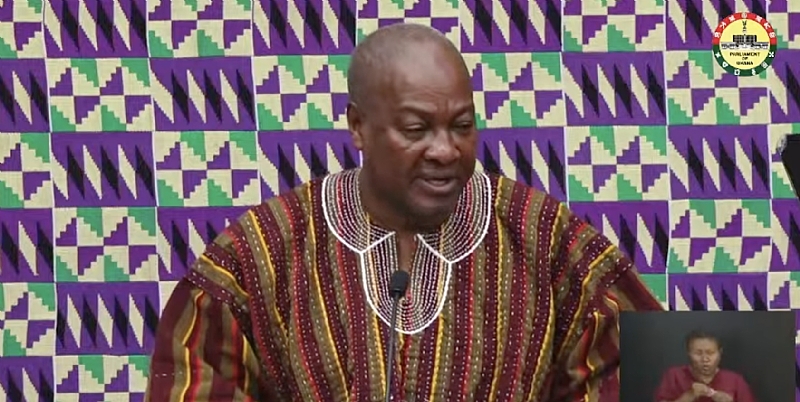The alarming announcement by President John Dramani Mahama in his 2025 State of the Nation Address unveiled a critical vulnerability within Ghana’s health sector: the impending withdrawal of funding by the United States Agency for International Development (USAID). This unexpected 90-day suspension of aid, coupled with the threat of a complete withdrawal of programs deemed misaligned with U.S. strategic interests, sent shockwaves through the nation, jeopardizing crucial health initiatives and the well-being of countless Ghanaians. The President emphasized the severity of the situation, highlighting the potential loss of approximately $78 million allocated to vital areas such as malaria prevention, maternal and child health, nutrition programs, and HIV/AIDS treatment. This abrupt disruption of funding posed an immediate threat to the fragile healthcare system, demanding swift and decisive action.
The President’s address painted a stark picture of the potential consequences should USAID completely withdraw its support. Several key regions, including the Upper West, Upper East, Northern, and Savannah regions, faced the dire prospect of disrupted medical commodity deliveries to regional medical stores and health facilities. These regions, often characterized by limited resources and challenging geographical terrain, rely heavily on the consistent flow of essential medicines and supplies to maintain basic healthcare services. The withdrawal also threatened the National HIV/AIDS Control Programme, particularly in the Western, Western North, and Ahafo regions, placing at risk the supply of antiretroviral therapies (ARTs) crucial for managing HIV and preventing its progression to AIDS. This disruption posed a grave danger to individuals living with HIV, threatening their access to life-saving treatment and potentially leading to increased morbidity and mortality.
The potential cessation of USAID’s financial support cast a long shadow over Ghana’s health sector, highlighting the country’s dependence on external funding for essential health services. The $78 million at risk represented a significant portion of the budget allocated to key health programs, and its loss would create a substantial funding gap, jeopardizing the progress made in combating diseases like malaria, improving maternal and child health outcomes, addressing malnutrition, and managing the HIV/AIDS epidemic. The President recognized the urgency of the situation, acknowledging the devastating impact that the funding withdrawal could have on the health and well-being of Ghanaians.
In response to this impending crisis, President Mahama demonstrated decisive leadership. He directed the Minister of Finance to take immediate action to mitigate the potential financial loss and ensure the continuity of essential health services. This directive signaled the government’s commitment to safeguarding the health of its citizens and underscored the importance of prioritizing healthcare funding, even in the face of unexpected challenges. The President’s expectation that these financial arrangements be reflected in the upcoming budget further emphasized the seriousness of the situation and the government’s intent to address the funding gap proactively.
The potential withdrawal of USAID funding underscored the vulnerability of relying heavily on external aid for essential services like healthcare. While international partnerships play a vital role in supporting development efforts, the sudden disruption of funding can have devastating consequences, particularly in sectors as critical as health. The situation in Ghana served as a stark reminder of the need for countries to strengthen their domestic resource mobilization efforts and diversify funding sources to ensure the sustainability and resilience of essential services. It also highlighted the importance of open communication and collaboration between donor agencies and recipient countries to minimize the impact of funding changes and ensure a smooth transition in the event of program adjustments or withdrawals.
The crisis precipitated by USAID’s funding suspension served as a wake-up call, prompting Ghana to reassess its healthcare financing strategies and explore alternative funding mechanisms. The President’s directive to the Minister of Finance signaled a proactive approach to addressing the immediate funding gap and mitigating the potential impact on essential health services. Moving forward, it became imperative for Ghana to strengthen its domestic resource mobilization efforts, explore innovative financing mechanisms, and prioritize investments in the health sector to ensure the long-term sustainability and resilience of its healthcare system. This experience underscored the importance of building a more robust and self-reliant healthcare system, capable of weathering external shocks and ensuring the health and well-being of all Ghanaians.














